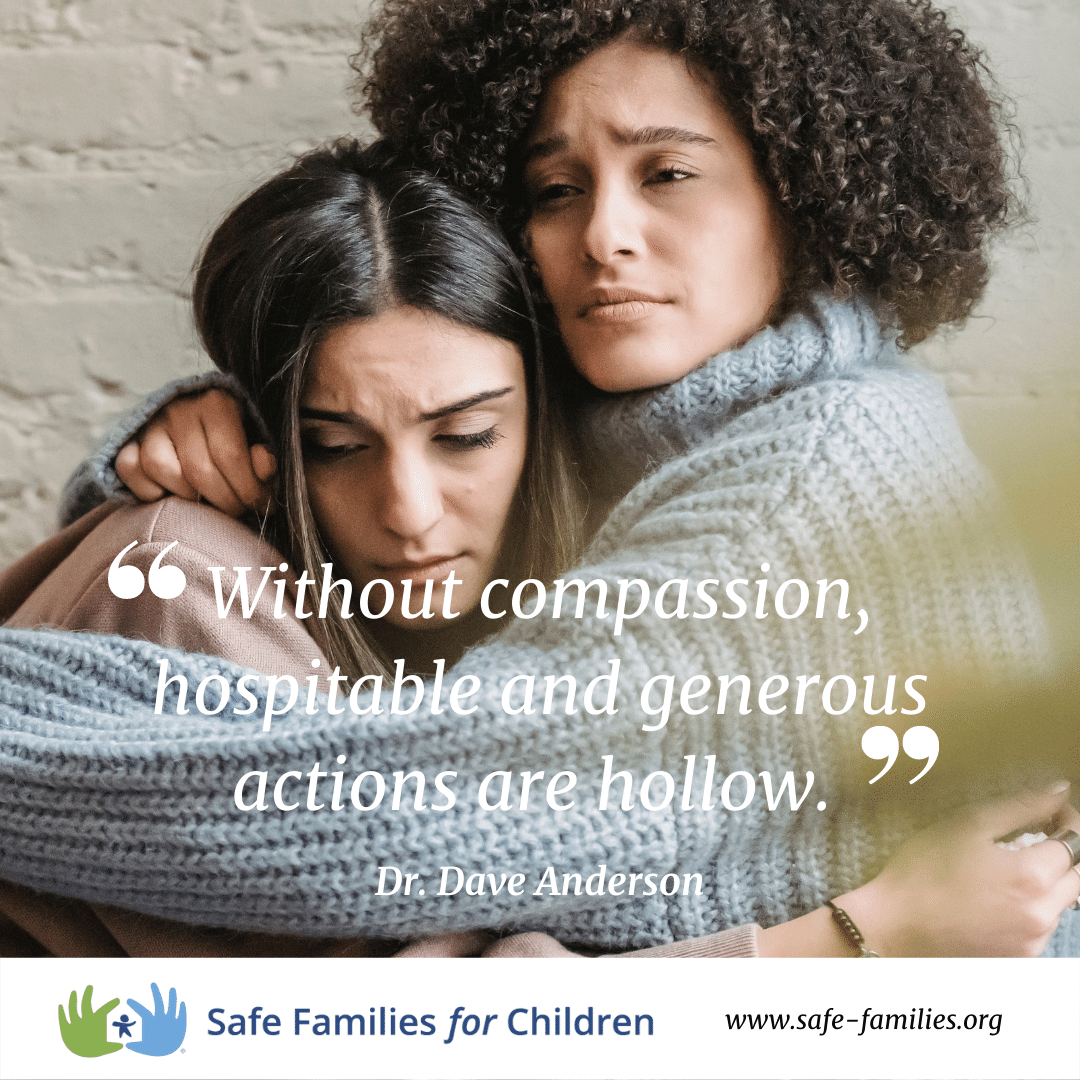“Praise be to God and Father of our Lord Jesus Christ, the Father of compassion and the God of all comfort, who comforts us in all our troubles, so that we can comfort those in any trouble with the comfort we ourselves receive from God.”
2 Corinthians 1:3-5
The three core values of Safe Families are radical hospitality, disruptive generosity, and intentional compassion. Radical hospitality is the idea that we love strangers by opening our lives to strangers by inviting them into our homes to live and fellowship with us. We call it radical hospitality because caring for a vulnerable child without being paid or adopting them, is quite unusual and sets us apart from others. Disruptive generosity is complex. Generosity means the sharing of one’s possessions (home, car, family, money, encouraging words, etc.) with those in need. We recognize that God is the owner, and we are His stewards. When we live a generous life, especially in a cancel culture, we inspire others to do the same.
Compassion is the underlying emotion or attitude that gives life to hospitality and generosity. Without compassion, hospitable and generous actions are hollow. The Bible commands us to “practice hospitality” and “offer hospitality ungrudgingly.” Compassion gives life to hospitality and generosity and ensures they do not become a chore or duty. One definition of compassion is the act or capacity for sharing the painful feelings and experiences of others. It implies the capacity to feel what others feel but with the urgency to do something about it. It involves the capacity to step out of our own shoes and experiences and put ourselves into the shoes of someone else. Without that, our acts can be subtly flavored with judgment.
Is it possible that God allows us to suffer, in part, so that in experiencing His comfort, we might be able, even eager, to share it with others? The world tells us that suffering has no meaning or purpose. We know differently. One of the outcomes of our own suffering is a desire to come alongside someone else who is suffering not just with empathy but with a willingness to get our hands dirty in helping. How have you experienced God’s comfort during your trials? This is the fuel for hospitality and generosity.
During the Christmas season, many families (especially those facing crisis) experience a heightened stress of the season. “According to the American Psychological Association, 38% of people surveyed said their stress increased during the holiday season, which can lead to physical illness, depression, anxiety, and substance abuse.” Giving the gift of intentional compassion, especially at Christmas, shows families we see them, and we will walk with them. They are not alone!

